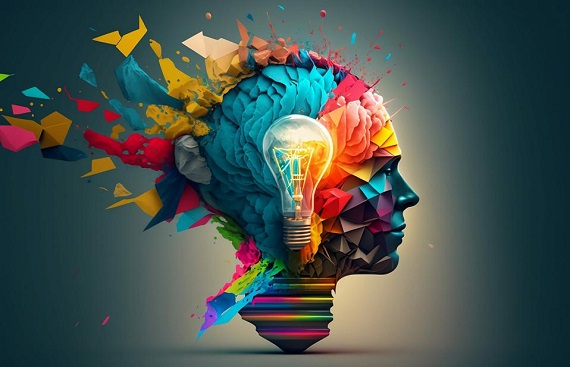Revolutionizing Education: The Synergy of Artificial Intelligence & Learning

The integration of Artificial Intelligence (AI) and machine learning in the education industry has revolutionized the way we learn and teach. Smart education is the latest and trending buzzword in the education sector, which is changing the way we approach learning. As e-learning continues to grow in demand, ChatGPT's advanced language model provides a solution for generating content, answering students' questions, and grading assignments. By offering personalized and adaptive learning experiences, ChatGPT is transforming the traditional education experience.
ChatGPT's advanced capabilities are utilized in creating various educational applications that make learning more accessible and effective. Its Natural Language Processing (NLP) capabilities enable students to engage conversationally, providing instant feedback and support. Additionally, ChatGPT benefits include personalized learning, language learning, and assistance for educators. The ChatGPT's implementation also poses challenges that must be proactively addressed to ensure equitable and effective learning outcomes. Despite these challenges, the potential for ChatGPT to transform education is significant, and its continued development could have a profound impact on the future of learning.
Personalized Learning
The integration of AI and machine learning in education enables personalized learning for students. With the help of AI, educators can monitor the learning patterns of individual students and create custom learning paths for them. AI-powered learning systems can provide personalized recommendations and feedback to students based on their performance and progress.
- AI-powered adaptive learning systems use algorithms to analyse student performance and adjust the learning materials to their specific needs. This ensures that students are learning at their own pace, making the learning experience more effective and engaging.
- Intelligent Tutoring Systems (ITS) use AI to provide personalized tutoring and feedback to students. ITS analyse student performance and provide tailored feedback and suggestions to help students improve their learning outcomes.
Improved Student Engagement
AI-powered learning systems can be a powerful tool for improving student engagement, as they offer personalized and adaptive learning experiences that can be tailored to each student's individual needs and learning style. Here are some ways in which AI-powered learning systems can help to increase student engagement:
- Personalization: AI-powered learning systems can analyze student data and provide personalized learning experiences that are tailored to each student's strengths, weaknesses, and learning style. This can help to keep students engaged and motivated, as they are more likely to be successful when they are working at their own pace and level.
- Adaptivity: AI-powered learning systems can adapt to each student's progress and adjust the difficulty level of the material accordingly. This can help to prevent students from becoming bored or frustrated with material that is too easy or too difficult for them, and keep them engaged in the learning process.
- Interactivity: AI-powered learning systems can offer interactive and engaging learning experiences that go beyond traditional textbook-based learning. For example, they may incorporate gamification elements, simulations, or virtual reality experiences that can make learning more fun and engaging.
- Feedback: AI-powered learning systems can provide immediate feedback to students, which can help to reinforce learning and motivate them to continue. This can be particularly effective for students who struggle with traditional forms of assessment or who need more frequent feedback to stay engaged.
Gamification of Learning
Gamification of learning involves the use of game elements and mechanics in the learning process. AI-powered learning systems can create engaging games that make learning fun and interactive for students.
Virtual Reality and Augmented Reality
AI-powered virtual reality and augmented reality technologies can create immersive learning experiences for students. This can make learning more engaging and interactive, which can improve learning outcomes.
Enhanced Teaching and Learning Experience
AI-powered learning systems can help enhance the teaching and learning experience by providing valuable insights and analytics to educators. This can help educators optimize their teaching methods and improve student learning outcomes
Intelligent Content Creation
AI-powered content creation tools can help educators create high-quality learning materials that are tailored to individual students' learning needs. This can help ensure that students are getting the most out of their learning experience.
Predictive Analytics
AI-powered predictive analytics can help educators identify students who may be at risk of falling behind and provide targeted interventions to help them catch up. This can help ensure that students are getting the support they need to succeed.
Final Thoughts
The integration of AI and machine learning in education is transforming the way we learn and teach. Smart education is becoming a significant trend in the education industry, and ChatGPT is at the forefront of this revolution. By offering personalized and adaptive learning experiences, ChatGPT is changing the traditional education experience for the better. The use of AI-powered learning systems can enhance the teaching and learning experience, increase student engagement, and improve learning outcomes. Although there are challenges that must be addressed, the potential for AI-powered education is enormous, and its continued development could have a significant impact on the future of learning. With the continued development of AI-powered education tools, the possibilities for improving the education system and providing high-quality education to everyone are endless.
